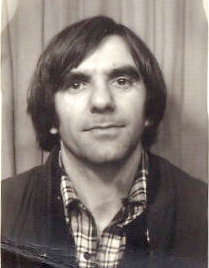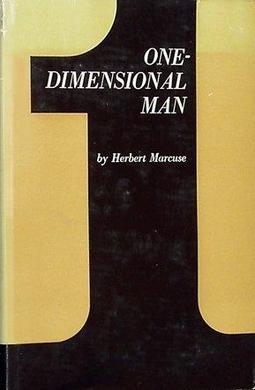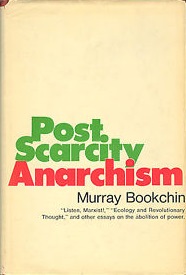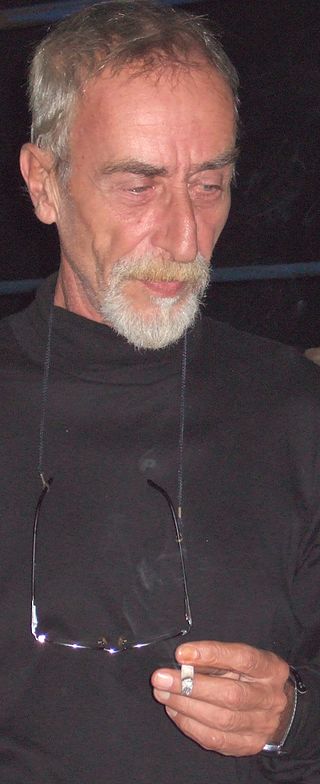
The Red Army Faction, also known as the Baader–Meinhof Group or Baader–Meinhof Gang, was a West German far-left militant group founded in 1970 and active until 1998. The RAF described itself as a communist and anti-imperialist urban guerrilla group. It was engaged in armed resistance against what it considered a fascist state. Members of the RAF generally used the Marxist–Leninist term faction when they wrote in English. Early leadership included Andreas Baader, Ulrike Meinhof, Gudrun Ensslin, and Horst Mahler. The West German government considered the RAF a terrorist organization.

The Spaßguerilla or Spaßgerilja was a grouping within the student protest movement of the 1960s in Germany that agitated for social change, in particular for a more libertarian, less authoritarian, and less materialistic society, using tactics characterized by disrespectful humour and provocative and disruptive actions of a minimally violent nature. Events organized by the groups included actions such as attacking politicians or the police with custard pies.

The Frankfurt School is a school of thought in sociology and critical philosophy. It is associated with the Institute for Social Research founded at Goethe University Frankfurt in 1923. Formed during the Weimar Republic during the European interwar period, the first generation of the Frankfurt School was composed of intellectuals, academics, and political dissidents dissatisfied with the contemporary socio-economic systems of the 1930s: namely, capitalism, fascism, and communism.

Alfred Willi Rudolf "Rudi" Dutschke was a German sociologist and political activist who, until severely injured by an assassin in 1968, was a leading charismatic figure within the Socialist Students Union (SDS) in West Germany, and that country's broader "extra-parliamentary opposition" (APO).

In Marxist philosophy, cultural hegemony is the dominance of a culturally diverse society by the ruling class who shape the culture of that society—the beliefs and explanations, perceptions, values, and mores—so that the worldview of the ruling class becomes the accepted cultural norm. As the universal dominant ideology, the ruling-class worldview misrepresents the social, political, and economic status quo as natural, inevitable, and perpetual social conditions that benefit every social class, rather than as artificial social constructs that benefit only the ruling class.

One-Dimensional Man: Studies in the Ideology of Advanced Industrial Society is a 1964 book by the German–American philosopher and critical theorist Herbert Marcuse, in which the author offers a wide-ranging critique of both the contemporary capitalist society of the Western Bloc and the communist society of the Soviet Union, documenting the parallel rise of new forms of social repression in both of these societies, and the decline of revolutionary potential in the West. He argues that the "advanced industrial society" created false needs, which integrated individuals into the existing system of production and consumption via mass media, advertising, industrial management, and contemporary modes of thought.

The West German student movement, sometimes called the 1968 movement in West Germany, was a social movement that consisted of mass student protests in West Germany in 1968. Participants in the movement later came to be known as 68ers. The movement was characterized by the protesting students' rejection of traditionalism and of German political authority which included many former Nazi officials. Student unrest had started in 1967 when student Benno Ohnesorg was shot by a policeman during a protest against the visit of Mohammad Reza Pahlavi, the Shah of Iran. The movement is considered to have formally started after the attempted assassination of student activist leader Rudi Dutschke, which sparked various protests across West Germany and gave rise to public opposition. The movement created lasting changes in German culture.

Eros and Civilization: A Philosophical Inquiry into Freud is a book by the German philosopher and social critic Herbert Marcuse, in which the author proposes a non-repressive society, attempts a synthesis of the theories of Karl Marx and Sigmund Freud, and explores the potential of collective memory to be a source of disobedience and revolt and point the way to an alternative future. Its title alludes to Freud's Civilization and Its Discontents (1930). The 1966 edition has an added "political preface".
The Außerparlamentarische Opposition, was a political protest movement in West Germany during the latter half of the 1960s and early 1970s, forming a central part of the German student movement. Its membership consisted mostly of young people disillusioned with the grand coalition of the Social Democratic Party of Germany (SPD) and the Christian Democratic Union (CDU). Since the coalition controlled 95 percent of the Bundestag, the APO provided a more effective outlet for student dissent. Its most prominent member and unofficial spokesman was Rudi Dutschke.

Post-Scarcity Anarchism is a collection of essays by Murray Bookchin, first published in 1971 by Ramparts Press. In it, Bookchin outlines the possible form anarchism might take under conditions of post-scarcity. One of Bookchin's major works, its author's radical thesis provoked controversy for being utopian in its faith in the liberatory potential of technology.

Gerd Langguth was a professor of political science at the University of Bonn and the author of biographies of Angela Merkel, Horst Köhler and of Rudi Dutschke

Counterrevolution and Revolt is a 1972 book by the philosopher Herbert Marcuse.
The New Left was a broad political movement that emerged from the counterculture of the 1960s and continued through the 1970s. It consisted of activists in the Western world who campaigned for a broad range of social issues such as feminism, gay rights, drug policy reforms and the rejection of traditional family values, social order, and gender roles. The New Left differs from the traditional left in that it tended to acknowledge the struggle for various forms of social justice, whereas previous movements prioritized explicitly economic goals. However, many have used the term "New Left" to describe an evolution, continuation, and revitalization of traditional leftist goals.

Herbert Marcuse was a German–American philosopher, social critic, and political theorist, associated with the Frankfurt School of critical theory. Born in Berlin, Marcuse studied at the Humboldt University of Berlin and then at Freiburg, where he received his Ph.D. He was a prominent figure in the Frankfurt-based Institute for Social Research, which later became known as the Frankfurt School. In his written works, he criticized capitalism, modern technology, Soviet Communism, and popular culture, arguing that they represent new forms of social control.
Karola Bloch was a Polish-German architect, socialist, and feminist. She was the third wife of the German philosopher Ernst Bloch.

Jakob Blasel is a German climate activist and politician of Alliance 90/The Greens.

Rüdiger Proske was a prolific German author on politics and current affairs, a television journalist and a social democratic trades unionist. In 1961 he was a co-founder of the NDR current affairs programme Panorama.

Gretchen Dutschke-Klotz is a German-American author and former activist. In West Berlin and West Germany in 1960s she was active with her husband Rudi Dutschke in the Socialist Students Union (SDS) and the Federal Republic's broader "extra-parliamentary opposition" (APO).
Hans-Jürgen Krahl was a West German philosophy student and political activist who came to wider prominence as a participant in the '68 Student Protest movement of which, in the eyes of admirers, he was a leading ideologue. His admirers included Rudi Dutschke.

Peter-Paul Zahl was a German-born anarchist–libertarian writer and director. He last held dual German–Jamaican citizenship.















